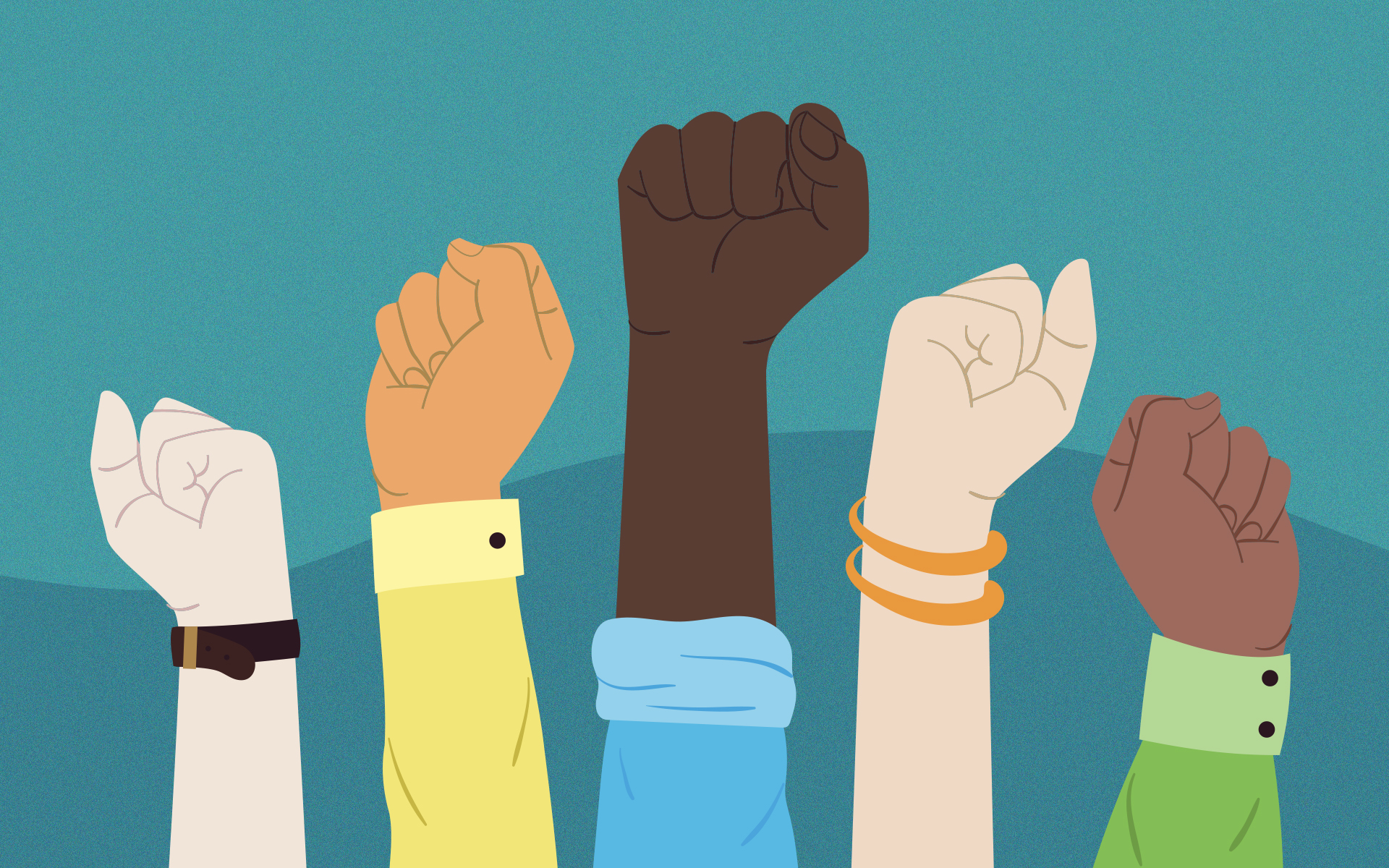For many, gossiping ranks among the great sins. Saint Paul placed whispering and backbiting on a par with murder, deceit, and fornication as vices deserving of capital punishment. Teachers routinely ask middle-school students to not gossip or whisper with their friends. For good reason: Gossip can humiliate and harm in ways that might even shorten lives. Andrew Jackson’s wife, Rachel, had left her first marriage to run off with the future president in 1793, when divorce rates hovered between 0% and 5%. As a result, she was the target of vicious gossip during Jackson’s presidential campaign. When she first read of her damaged reputation, she collapsed in tears. Weeks later, she was dead.
There’s no question that gossip can be damaging. But these exceptional uses of gossip—typically by those who are abusing their power—do not prove the rule. In fact, gossip is an ancient and universal means by which group members give power to select individuals and keep the powerful in check.
Gossip is how we articulate a person’s capacity for advancing the greater good and spread that information to others. We gossip about what might be true of a person’s character. When we talk with others about firmly known facts—a neighbor is in prison, a work colleague is in rehab, a friend on the softball team has cancer—we are passing on established information that does not buzz with the energized feel of speculation so true of gossip. We resort to gossip to explore potential flaws in a person’s character. Gossip seeks confirmation of character flaws defined by the flouting of principles that enhance the greater good.
Gossip, then, is how a social network negotiates and establishes a person’s reputation, in particular those who seek power and want to exert influence in Machiavellian fashion. For example, US presidential campaigns are defined by pitched battles over gossip, which hovers around every candidate and eventually targets every president at some point. Political gossip zeroes in on whether a politician does things that risk unraveling the culture, or things that are the foundation of the greater good. During the era of slavery, political gossip focused on candidates’ racial background. During Prohibition, gossip investigated politicians’ alcoholic tendencies and the potential hypocrisies of their imbibing. During the drug wars, the drug-taking habits of politicians became prominent. In 2021, that people gossip about the potential factors that produced the coronavirus pandemic is not surprising, given heated international tensions and the erosion of public trust in scientific and political leaders. Thomas Jefferson had a keen sense for the power of gossip in establishing political reputations. He the forms of political gossip during his day and concluded that the most damaging centered on selfish, backstabbing, socially destructive acts.
A Cap on Selfish Actions
To capture Jefferson’s reasoning as it applies to a 21st-century social group, I studied the patterns of gossip in a network of sorority sisters at UC Berkeley. In the first phase, I gathered measures of the sisters’ Big Five—their enthusiasm, kindness, focus, calm, and openness—and their Machiavellianism, or tendency to lie, manipulate, and coerce. Then several weeks later I brought each sister to the lab and interviewed her privately about how often she gossiped about each of the other women in the sorority, and with whom she shared the gossip. The frequent targets of gossip were young women who most threatened the sorority’s greater good: They were well known and highly visible but, by their own reporting, unkind and highly Machiavellian, willing to harm, lie, and manipulate to rise in power. As in this case, gossip typically targets individuals who seek power at the expense of others.
Other research has found that gossip’s purpose is to tarnish the reputations of individuals who diminish the greater good. Researchers who hung around a crew of strapping rowers at an East Coast college listened in on the teammates’ banter as they traveled to and from practice. The gossip systematically concentrated on one teammate who was not making practices on time, nor rowing hard enough or in sync with his teammates. He was failing to advance the greater good by literally not pulling his weight. Cattle ranchers in the western United States, in their spare, tightlipped exchanges, gossiped about their neighbors who didn’t keep their fences in order. Again, gossip targets actions that undermine the trust of the community—for ranchers, the poor upkeep of fences. In hunter-gatherer societies, gossip is directed at coercive bullies who exploit others and steal food or sexual partners.
How gossip flows through social networks enhances its power to tarnish the reputations of those who do less to promote the greater good. On average, we pass along every act of gossip we receive to 2.3 people, typically to high-status, highly connected people like, in the sorority study, high-status and admired young women. Gossip flows to individuals who have the greatest power to define, and damage, the reputations of others.
Gossip Gone Wild
So powerful is the social instinct to gossip that it gave rise to institutions that preserve its basic function. The first newspapers in 17th-century England to be widely read and financially sustainable were gossip rags about the neighborhood knaves and ne’er-do-wells, the flirts and drunks, the philanderers and squanderers, and the debauching aristocracy. One of America’s wisest citizens, Ben Franklin, wrote a gossip column, the first in America, that appeared in 1814 and was devoted to satirical commentary upon the scurrilous acts of people nearby.
In today’s digital world, gossip and the construction of reputations have gone viral on websites and blogs. Restaurants, stores, and hotels anxiously keep an eye on their customer ratings on Yelp. Politicians are tracked on Gawker and spoofed on The Onion. The Shittytipper Twitter feed names well-known individuals known to tip below the conventional 15-20%. A now-defunct blog called Holla Back NYC allowed women to submit photos of men who harassed, groped, catcalled, or leered at them.
Our obsession with spreading information about reputation has costs: intrusions into our private lives, mistakes in identity, and escalations into bullying, all indirect forms of oppression. Most of us have been the inappropriate targets of gossip and suffered in the moment. But on balance, the benefits of allowing groups to freely communicate about the reputations of others outweigh these costs.
In one study to first capture this idea, 24 participants came to the lab and were divided into groups of four. They played six rounds of an economic game; in every new round they played with participants they had not played with before. In each round, each participant was given some money and presented with the chance to give some money to a group fund. That gift would increase in value and be redistributed among the four players. This game pitted the tendency to act on behalf of others—give money to the group fund— against the free-riding tendency to not contribute yet take money from the group fund built up by others’ generosity. At the end of the first round, players learned how much the three other group members had given to the group fund. Participants moved on to a new group of four players and played again, repeating this procedure six times.
After the first round, the study got interesting. In a gossip condition (that is, one of the subgroups within the study), participants could send a note to those who would be playing with their former partners about those individuals’ cooperative or selfish tendencies. As in real life, all players were aware of the possibility that they would be gossiped about. In an even more puritanical condition—gossip plus ostracism—participants had the chance not only to gossip but also to vote to exclude their former partners from playing in the next round.
Who Can You Trust?
In a neutral condition lacking the opportunity to gossip or ostracize, people gave less and less to the public fund over time. After trusting others initially but being taken advantage
of by the occasional individual with low commitment to the greater good, most people abandon their cooperative instincts and give less. In the condition in which participants could gossip, participants actually gave more. And in the condition allowing for gossip and ostracism, participants’ gifts to the group fund actually rose over the course of the experiment.
Social penalties like gossip, shaming, and ostracism are painful indeed and can easily be misused (in particular by those in power). But they are also powerful social practices, seen in all cultures, by which group members elevate the standing of those who advance the greater good and prevent those less committed to it from gaining power.
Power is the capacity to influence. It is the basic medium of our social lives. In the past 50 years, power—in politics, in the workplace, in our communities—has become more diverse and collaborative. Yet, we can still find examples, particularly in the political landscape, of coercive, deceptive, violent approaches to power. We have also seen, though, that such forms of power will not be tolerated forever. In the absence of wisdom, power leads to empathy failures, selfish and destructive acts, and racist, polarizing attitudes. Yet our social systems, from neighborhoods to democracies, are expressions of our power to rein in those who abuse theirs through accountability, assessing reputations, and uplifting what we esteem.
We all suffer from power irresponsibly wielded. Let’s turn toward compassionate power.
From The Power Paradox by Dacher Keltner, published by Penguin Press, a division of Penguin Random House, LLC. Copyright (c) 2016 by Dacher Keltner.
read more
A 10-Minute Practice to Help Curb the Thrill of Gossiping
The stories we tell about others may or may not be true, and telling them often involves a subtle breach of integrity.
Read More
Kind Communication Is Easier Than You THINK
Chris Willard shares a few useful mnemonics that help us stay on course with speaking and communicating mindfully.
Read More
Sharon Salzberg Reveals Why Our Interconnectedness Is Our Greatest Strength
In her forthcoming book, Real Change, Sharon Salzberg explores how nourishing our essential goodness and compassion empowers us to be forces of change that both soften and strengthen us.
Read More











